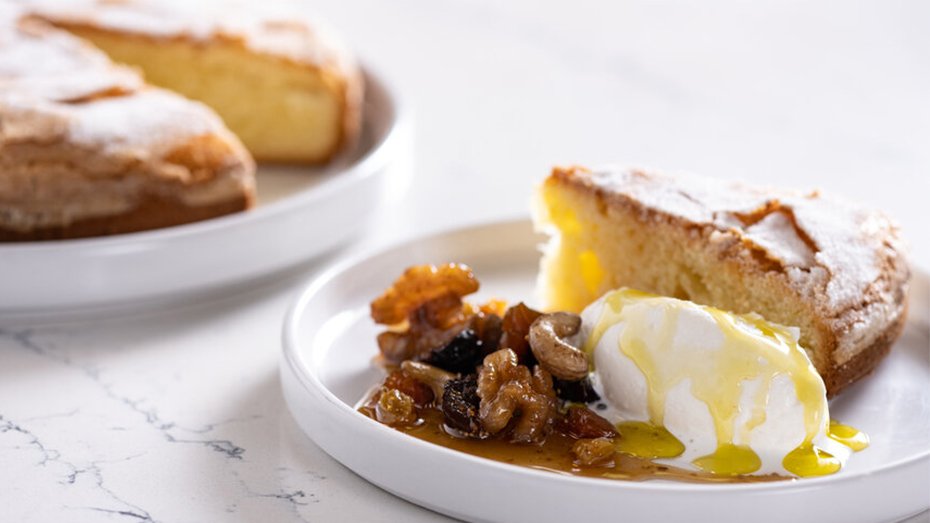Passion Fruit and Olive Oil Sorbet
Often American or other non-Mediterranean chefs and home cooks who are passionate users of olive oil have a blind spot when it comes to baking, pastry, and desserts. And yet here also olive oil and the plant-forward kitchen—based in traditional Mediterranean food cultures but not limited by them—have much to offer. If you have never had a semolina cake with ground almonds, citrus, and a medium fruity (or whatever your preference is) extra virgin olive oil, you have no idea what you have been missing. High-quality, extra-virgin olive oil brings amazing new flavor dimensions to cakes, cookies, breads, and more. (From a functional perspective, some modest adjustment will likely need to be made to the amount of olive oil used when swapping out butter.)
Similarly, the world of ice cream will never be the same once you discover what an aromatic, extra-virgin olive oil can do in this arena, whether paired with dark chocolate or flavors a bit more exotic including blood orange, passion fruit, saffron, rosemary, or fig.
With the CIA-Harvard Chan Menus of Change initiative, we speak of the healthy dessert market basket which includes fresh and dried fruit, nuts and seeds, dark chocolate, healthy fats and oils (e.g., extra virgin olive oil), whole grains, yogurt, herbs, spices and aromatics, and modest amounts of alcohol. As a pastry chef or home cook, if you brainstorm to connect that market basket including peak-of-season fruit with the spirit of the Mediterranean olive oil kitchen, the opportunities for deliciousness abound.
The chairman of our Menus of Change Scientific Advisory Council, Walter Willett, MD, DrPH, professor and past chairman of the Department of Nutrition, Harvard T.H. Chan School of Public Health, has challenged pastry chefs throughout our country to think in terms of “The Three Pleasures”—i.e., what can you make with only fresh or dried fruit, nuts, and dark chocolate. It has been amazing over the past few years to see the creativity our nation’s talented pastry chefs have brought to this challenge. In the context of the Mediterranean-inspired olive oil kitchen and an expanded market basket of healthy baking and pastry ingredients mentioned above, the creativity should only blossom further.
And finally, on the baking and restaurant service front, there is this: as an industry, we need to replace much of the breads made from refined grains (i.e., white flour) with whole grains (including some intact whole grains). To the extent that we can increasingly serve well-crafted, whole-grain breads at the table in our restaurants with high-quality olive oil, we’ll be doing the health of our customers a big favor, and introducing them to a field of flavor discovery that too few know.





